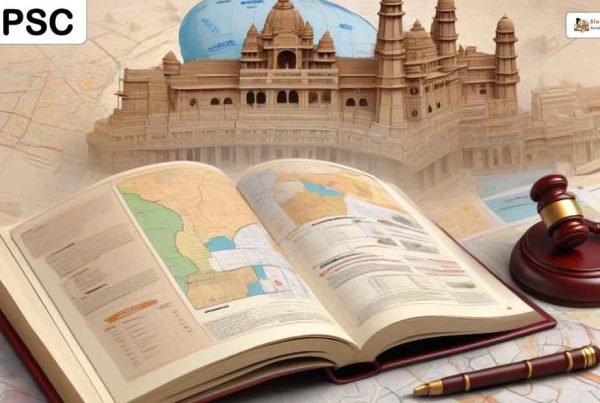Answering Questions About Civil Service Reforms in the UPSC Interview
Civil services have been the backbone of governance in India, ensuring the implementation of policies and programs across diverse regions. However, evolving socio-economic challenges necessitate continuous civil service reforms to make the administration more efficient, accountable, and citizen-centric. In the UPSC Personality Test, questions about civil service reforms assess a candidate’s understanding of the current administrative system and their ability to propose practical improvements.
This blog outlines how to effectively address questions about civil service reforms in the UPSC interview, provides practical examples, and shares resources for thorough preparation.
Why Are Civil Service Reforms Relevant in UPSC Interviews?
1. Reflects Awareness of Governance Challenges
- Discussing civil service reforms demonstrates your understanding of administrative inefficiencies and potential solutions.
2. Highlights Analytical Thinking
- Proposing reforms showcases your ability to analyze problems critically and think strategically.
3. Aligns with the Role of a Civil Servant
- Addressing reforms reflects your commitment to enhancing governance and public service delivery.
4. Tests Knowledge of Policies and Frameworks
- The panel evaluates your familiarity with reports like the Second ARC, Mission Karmayogi, and governance best practices.
Key Areas to Focus on in Civil Service Reforms
1. Recruitment and Training
- Challenges: Outdated recruitment processes, lack of emphasis on soft skills.
- Reforms:
- Introducing aptitude-based recruitment tests.
- Expanding the Mission Karmayogi program for continuous learning and skill enhancement.
2. Accountability and Transparency
- Challenges: Delayed grievance redressal, lack of performance monitoring.
- Reforms:
- Leveraging technology for real-time performance tracking.
- Strengthening social audits and citizen feedback mechanisms.
3. Decentralization
- Challenges: Excessive centralization of decision-making.
- Reforms:
- Empowering local governance institutions.
- Enhancing financial autonomy for municipalities and panchayats.
4. Bureaucratic Red Tape
- Challenges: Inefficient processes and procedural delays.
- Reforms:
- Streamlining procedures through e-governance initiatives.
- Implementing single-window clearance systems.
5. Ethics and Integrity
- Challenges: Corruption and lack of accountability.
- Reforms:
- Strengthening anti-corruption frameworks.
- Incorporating ethical training in induction programs.
Strategies to Address Civil Service Reforms Questions
1. Use Relevant Examples
- Support your responses with case studies or success stories from states or countries.
Example:
“The Lok Mitra initiative in Himachal Pradesh uses technology to enhance transparency, reducing procedural delays in grievance redressal.”
2. Link to Policy Frameworks
- Refer to reports and policies like the Second ARC recommendations, Digital India initiatives, and the National e-Governance Plan.
3. Propose Balanced Solutions
- Combine technology-driven reforms with human-centric approaches.
Example:
“While e-governance can streamline processes, capacity building through training programs ensures that officials can adapt to new systems.”
4. Highlight Implementation Feasibility
- Emphasize how your suggested reforms can be implemented practically within the existing system.
Example:
“Expanding the Mission Karmayogi platform to district-level officers ensures continuous professional development without significant additional costs.”
5. Conclude with Optimism
- End with a forward-looking statement about how civil service reforms can transform governance.
Example:
“Reforming civil services with a focus on accountability, efficiency, and inclusivity can position India as a model for governance excellence.”
Examples of Well-Framed Responses
1. On Accountability
Question: “How can accountability in civil services be improved?”
Response:
“Accountability can be enhanced by integrating technology for real-time performance monitoring and citizen feedback. Initiatives like RTI and social audits should be strengthened, and officers must undergo regular performance evaluations linked to measurable outcomes.”
2. On Bureaucratic Red Tape
Question: “What steps can reduce bureaucratic delays?”
Response:
“Streamlining processes through single-window systems and digitizing approvals can significantly reduce delays. For instance, the e-Sewa portal in Andhra Pradesh ensures timely service delivery by eliminating unnecessary procedural layers.”
3. On Training and Recruitment
Question: “What changes do you propose in civil service recruitment?”
Response:
“The recruitment process should emphasize aptitude and ethical decision-making through psychometric tests. Additionally, programs like Mission Karmayogi can ensure that training remains dynamic, equipping officers with skills for contemporary challenges.”
Common Mistakes to Avoid
1. Overgeneralizing
- Avoid vague statements like “Civil services need modernization.” Provide specific and actionable solutions.
2. Ignoring Ground Realities
- Ensure your suggestions consider the practical challenges of implementation.
3. Overemphasizing Technology
- Balance technological reforms with human resource development.
4. Missing Ethical Dimensions
- Highlight the importance of ethics and integrity in reforms.
Resources to Prepare for Civil Service Reforms Questions
1. SleepyClasses Programs
- UPSC Interview Guidance Program: Expert coaching to refine your understanding of administrative reforms and governance challenges.
2. Books
- Ethics, Integrity, and Aptitude by Subba Rao: Discusses ethical dimensions of governance.
- Administrative Reforms: Governance in the 21st Century by Prajapati Trivedi: Provides insights into reform strategies.
3. Reports
- Second ARC Report: Comprehensive recommendations for administrative reforms.
- Economic Survey: Highlights reforms in governance and policy implementation.
4. Online Platforms
- Wikipedia: Foundational knowledge on administrative systems.
- PRS India: Policy briefs on administrative and governance reforms.
- PIB: Updates on government initiatives for civil service improvements.
Practice Strategies
1. Mock Interviews
- Practice discussing civil service reforms with peers or mentors.
- Enroll in:
UPSC Interview Guidance Program 2024
2. Group Discussions
- Participate in discussions about administrative challenges and reforms.
3. Note-Making
- Create concise notes on key reforms, case studies, and policies.
Conclusion
Addressing civil service reforms in the UPSC interview requires a nuanced understanding of administrative challenges and a vision for improvement. By focusing on recruitment, accountability, decentralization, and ethics, you can propose practical reforms that resonate with the panel.
Leverage resources like the UPSC Interview Guidance Program 2024 to refine your responses. With thorough preparation and a structured approach, you can confidently articulate your ideas and leave a lasting impression on the panel.
Good luck with your UPSC interview preparation!



